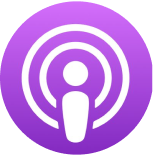I am thrilled to be joining BookClub as COO. Self-directed learning is in my blood. Between Audible, my Kindle, and the comfort of the printed page, I am an avid reader, and my kids are on the same path. As I ramp up at BookClub, I find myself reminiscing on my own history with books. We live in a time where reading is not only less discussed but often dismissed as uncool or low, even by people in power. But books have a power that can change the course of humanity and I think we can do more, and be better.
The first chapter book I read all on my own was Frog and Toad are Friends. The memory of walking around our narrow, linoleum-floored kitchen some winter night while my mom made dinner was revelatory, my face in the book forming the words that magically matched the green, yellow, and black illustrations while Rice-A-Roni cooked on the stove nearby. Perusing the pages of the series 34 years later, I realize my disdain for loose buttons may have actually started with Arnold Lobel’s classic characters.
“Toad put the thin button in his pocket. He was very angry. He jumped up and down and screamed, ‘The whole world is covered with buttons, and not one of them is mine!’ ”
What Lobel did in this series was showcase the ebbs and flows of friendship in simple cadence and words. How to help someone who’s feeling down or frustrated, the value of individuality, the satisfaction of shared experiences, dealing with a joke that doesn’t land, all in a way that connects with young readers. And it’s the shared connection of those universally felt experiences that has made the Frog and Toad series a classic.
Indeed, American culture itself (and many other cultures too) has been codified and magnified through books. The most influential books in American history were ones that united great swaths of people, giving them a shared language, way of believing, and hence, a culture.
The Christian Bible, Pilgrim’s Progress, and Common Sense in early America set the tone in the country for generations. Later, it was Uncle Tom’s Cabin, The Jungle, The Origin of Species, and others that flavored our culture with the rise of topics of equality coupled with the scientific method. Then it was The Joy of Cooking, The Invisible Man, The Great Gatsby, and oft-maligned and even banned books like Catch-22, The Catcher in the Rye, and Brave New World that forced the country to see the soft underbelly of the country and the limits of institutional trust. The rise of professional self-help books that emerged as people completely embraced capitalism, such as Think and Grow Rich, How to Win Friends and Influence People, 7 Habits of Highly Effective People, continue to have their impact today.
The world’s wisdom is contained in books. There is no media today extant with more of the human experience, knowledge, pain, or inspiration, than is contained in the pages of books. Reading books builds empathy, it creates psychological safety, it creates understanding, it widens the view. There is no more honest a work than to read a book. It means we’re learning, changing, growing, as individuals and together.
Reading a book alone can forever change a person. It creates a 1X change. But five people reading together creates 50X change, because now you’ve created shared values, shared language, and shared behaviors. You’re creating a new culture. Teams and groups that operate that way are unstoppable. That is why book clubs are so powerful.
I firmly believe the best way to decimate hatred, hyperbole, and ignorance in this world is by reading books. The best way to change the course of a people, a company, or a country, is through the reading of influential books. And that is why I joined BookClub: to amplify the power of books to change the vector of teams, companies, groups, and societies.









.webp)

.webp)
